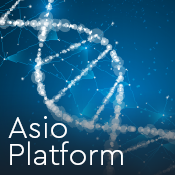Introducing delegated authentication access: Enhanced security for cloud backup
Zero trust is gaining traction worldwide as businesses seek to bolster their cybersecurity posture. According to the 2024 State of Zero Trust & Encryption Study, 61% of global organizations have begun their zero trust journey. However, only 48% of small businesses in the United States have started implementing this critical security framework. This gap highlights an opportunity for managed service providers (MSPs) to take the lead in guiding their customers toward zero trust adoption.
Zero trust: A crucial layer in Microsoft 365 data protection
For MSPs, the rise of zero trust means stricter access controls to customer environments. Microsoft 365® has become the backbone of many organizations’ digital infrastructure, facilitating communication, collaboration, and data storage. With this increased reliance comes an urgent need to prioritize data protection.
As custodians of sensitive data, MSPs are prime targets for cyberthreats. If compromised, MSPs can serve as a gateway to small and midsized businesses (SMBs) at scale, making stringent cybersecurity measures a necessity. To mitigate this, Microsoft has embedded zero trust principles into its security strategy—ensuring precise access management and minimized risks while maintaining the highest cybersecurity standards.
Introducing delegated authentication access
Zero trust is built on the principle of continuous verification and authentication of users and devices before granting access to critical resources. To support this, we are excited to introduce delegated authentication access. This recently launched feature boosts cybersecurity by enabling partners to send authentication requests to customers via a system-generated email or link, giving a secure start to their Microsoft 365 data protection journey.
What is delegated authentication, and how does it work?
Delegated authentication allows access to systems based on authentication performed by a trusted third-party service. In the Microsoft 365 ecosystem, this means users authenticate through a trusted identity provider without needing separate login credentials. This approach streamlines the authentication process while enhancing cybersecurity and productivity, making it easier for organizations to manage access securely.
With delegated authentication access, partners no longer need to have the required permissions to authenticate ConnectWise Cloud Backup™ as part of the Entra ID application installation or reauthorization processes. Instead, authentication can now be delegated to another individual, such as a customer or authorized user, who has the necessary permissions to complete the task.
Key benefits for MSPs
As a result of this release, partners are now able to:
- Bolster cybersecurity: Partners can strengthen backup strategies while guiding customers on their zero trust journey
- Accelerate deployment: By empowering customers, partners can expedite the transition from initial conversation to full protection
- Increase transparency: Engage customers early in their data protection journey, reinforcing long-term collaboration through features such as customer self-service and smart insights
The future-proof solutions for Microsoft 365 security
Zero trust is crucial for Microsoft 365 data protection. It’s purpose-built to help MSPs prioritize robust cybersecurity measures, safeguard sensitive data, and mitigate cyberthreats. By implementing zero trust and leveraging delegated authentication access, MSPs can enhance security, streamline authentication, and help customers build a stronger defense against evolving cyberthreats.









